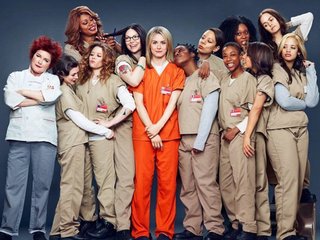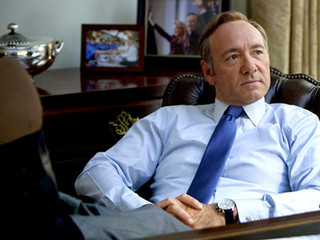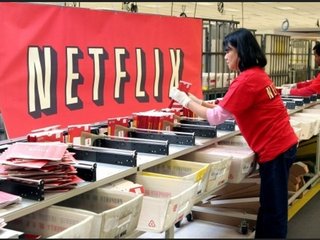
Netflix shares tank 26% on word of fewer domestic subs
Investors may also be spooked by HBO's aim to launch a streaming service

I have good news and bad news for your Wednesday. The good news is that HBO has finally crawled out from under its petrified log to embrace the age of the Internet with a new stand-alone HBO Go service. Hot damn! The bad news: Netflix will suffer. And is suffering.
Netflix shares tanked 26% in after-hours trading to $333 on word that the company failed to lure as many new subscribers as analysts had expected in the third quarter. I’m guessing the HBO announcement might also play into that precipitous drop.
Netflix announced Wednesday that it added over three million new subs last quarter, bringing the global total to 53.1 million members. Of that number, 980,000 were domestic subs. That’s great and all, but Wall Street was expecting at least 1.37 million additional domestic subs. CEO Reed Hastings acknowledged that the number fell short of Netflix’s forecast, which previously pegged Q3 domestic subscribers at 37.6 million, but only came in at 37.2 million.
Domestic additions didn’t just miss Netflix’s estimates; they actually came in lower than the same quarter last year. In Q3 2013, the company added 1.3 million new domestic subscribers.
“As best we can tell, the primary cause is the slightly higher prices we now have compared to a year ago. Slightly higher prices result in slightly less growth, other things being equal, and this is manifested more clearly in higher adoption markets such as the US,” Hastings wrote in a shareholder letter.
As you may recall, Netflix announced earlier this year that it would be raising the price of streaming for new customers to $8.99 a month, from $7.99 a month previously. So why didn’t the price hike affect subscriber growth in the second quarter? Hastings surmises that a particularly positive response to season two of Orange is the New Black offset the price hike.
Netflix expects to end the year with over 57 million global subscribers.
Aside from the low sub additions, Netflix announced in-line results this quarter. Streaming revenue came in at $1.22 billion, up from $884 million year-over-year, and the company posted an EPS of 96 cents per share. But it managed to burn through $74 million.
The company was quick to explain that it’s not losing subscribers to its competitors: “Since our per-member viewing and retention in the US are as strong as ever, we don’t think increased competition from piracy, TV Everywhere, Amazon Prime Instant Video, Hulu, etc, is a major factor.”
That may change with HBO’s big announcement Wednesday that it will embrace change and finally (FINALLY) launch a stand-alone streaming service. (Side note: I kind of feel like I can take credit for this move given the number of emails I sent to HBO demanding to know why they were trying to force me to buy a cable package just so I could finish season three of Game of Thrones. I think they finally got the message, you guys.)
Netflix is optimistic that everything will work itself out, though: “Starting back in 2011 we started saying that HBO would be our primary long-term competitor, particularly for content. The competition will drive us both to be better. It was inevitable and sensible that they would eventually offer their service as a standalone application. Many people will subscribe to both Netflix and HBO since we have different shows, so we think it is likely we both prosper as consumers move to Internet TV.”
Indeed, Netflix isn’t pulling any punches when it comes to staying competitive. In August 2015, the company will be releasing a sequel to the 2000 Oscar-winning film Crouching Tiger, Hidden Dragon. The sequel, Green Legend, will hit theaters and Netflix simultaneously.
Additionally, Netflix inked a deal for four new Adam Sandler feature comedies that will be released in early 2016. Which I guess is good news if you miss 1997…
Image source: adweek.com
Related News


Netflix shares explode after another banner quarter

